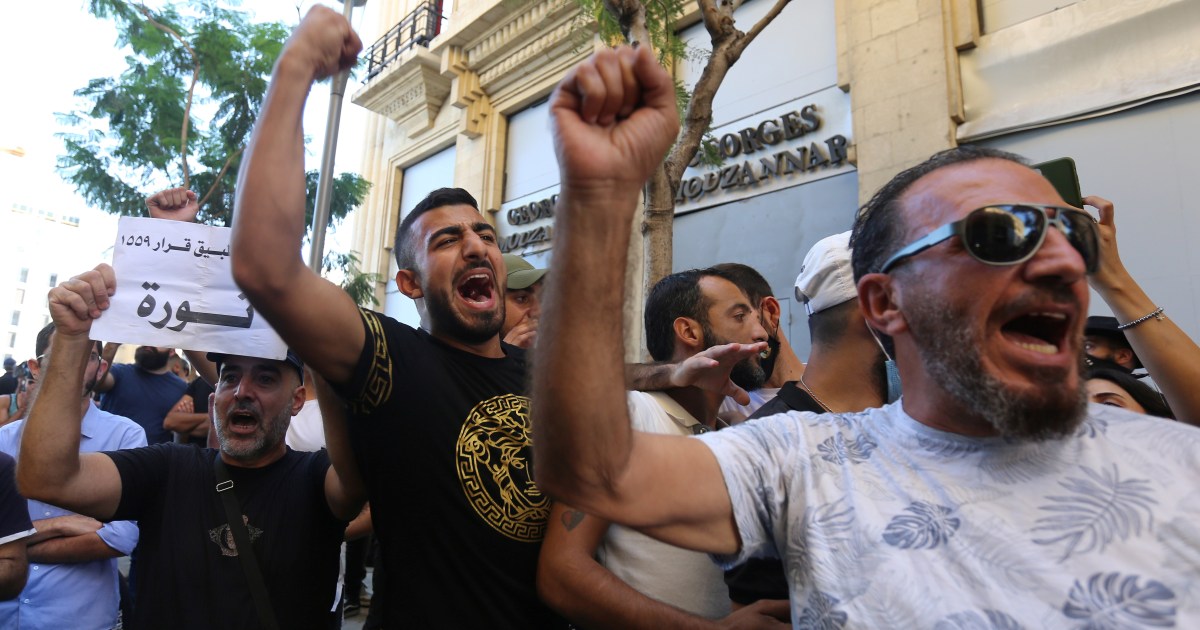On Monday evening, 3 major cities in Lebanon witnessed protest movements to reject the economic and living deterioration, in light of the continuing curfew due to Corona.
In the capital, Beirut, a number of demonstrators marched in the center of the city, during which they raised slogans holding the political class responsible for the economic and living collapse.
The demonstrators blocked a main road in the capital (Ring Bridge) for about half an hour, before it was reopened, in the presence of the internal security forces, without any confrontations.
For the third day in a row, protests broke out in the city of Tripoli (north of the country), against the economic situation, rejecting the continuation of the complete closure, which included road blocks and confrontations with the security forces.
Protesters pelted the Saraya Tripoli government building with stones extensively, to protest the general closure and seizure records written against violators, and the stifling economic crisis.
As a result, a number of cars were damaged.
The demonstrations witnessed limited confrontations between security forces and protesters, and tear gas canisters were used, while some protesters threw stones at police officers.
A demonstration roamed the streets of Saida (in the south), and protesters criticized the authority’s decisions and policies that "brought the country to collapse."
On Thursday, the Lebanese government announced the extension of the complete closure to the eighth of next February, as part of the measures to confront Corona, which include the closure of institutions and shops.
The Corona pandemic increased the wounds of Lebanon, which is going through the worst economic crisis since the end of the civil war (1975-1990), which caused an unprecedented decline in the value of the Lebanese pound against the dollar, and the collapse of the purchasing power of most citizens.

